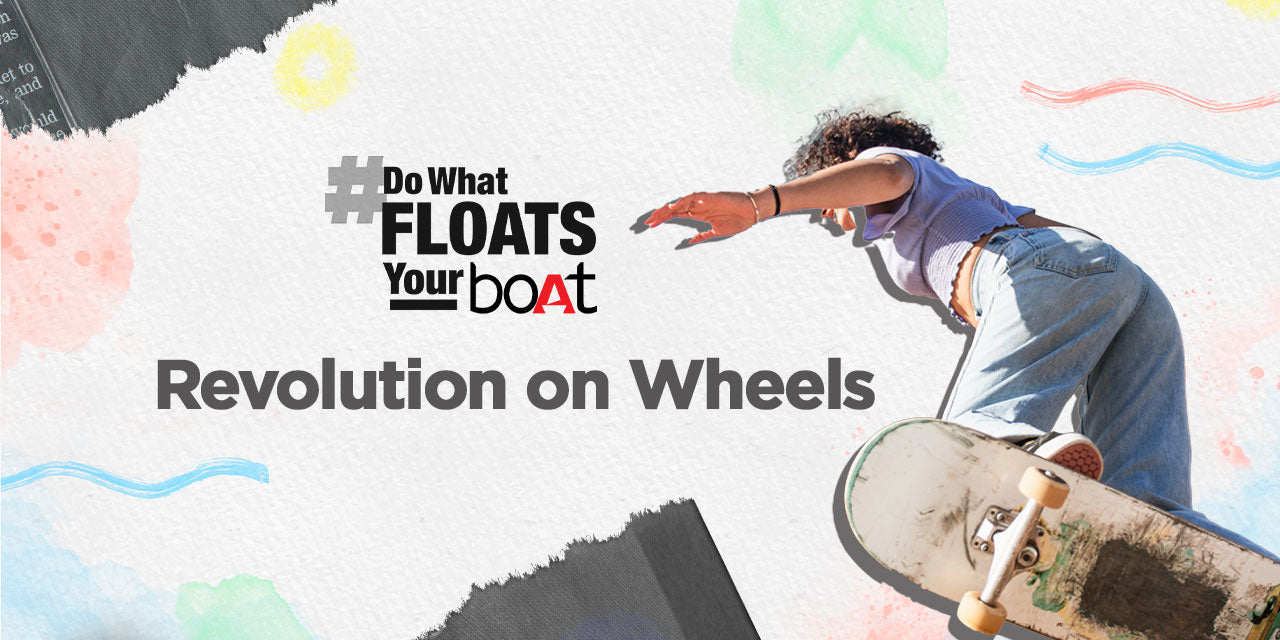Blog

Liberation through skateboarding: How the sport empowered...
Good things happen when people come together for a cause. And it becomes all the more awe inspiring when it is pulled-off against great odds. Be it change of the landscape of Alwar from complete barrenness to a plush green area, purely on the efforts of the local communities; or the creation of a safe place like Skateistan for children in a war torn Afghanistan.
Places like Skateistan where people from different communities come together and express themselves became a place for the kids to be free, and to momentarily forget all conflicts around them. What happened in Afghanistan was inspiring to Ulrike Reinhard and gave way to the idea of a Skate park in a small village in the heart of India.
Located in Madhya Pradesh, Janwar is like any other small village in India and has its own social evils. It was a place where educating girls was not deemed important, the unsaid rules of the caste system still affected people’s actions. To disrupt this set-up with the construction of a skating park was a game changer, where children from all communities would play. While the initial intentions of Reinhard was to set-up schools, the idea transformed into the setting up of something off-beat.
Metaphorically, the skating park and its vibe was a counter culture to the status quo. A place where kids from different communities could come together. The girls in Janwar seized this opportunity to step out. Now they had a common place where they could be free, feel the wind brushing their cheeks, experience true freedom during the moments spent on the board. They were not bound by the boundaries of their house, instead they had a place where they could move around freely without any hindrance. Skating in the rink was liberating for them. Soon enough, skateboarding was the best thing that happened in their life. So, from being a mere escape route, skateboarding became a passion for them. It gave them a chance to come out of the boundaries of their house. Where in a normal scenario they would have been married by the time they hit their 20s, handling their family. In doing what was making them feel happy, they broke those shackles of the society. In following what they like, they started to do what floats their boAt.
And so it happened. With the girls coming out, the skating rink in Janwar, the Janwar Castle, became a place where the lines of differences blurred. Kids irrespective of their caste or gender were playing in the same rink. Still for them to take on skateboarding was taking on a “boys sport”. The rink was still dominated by the boys. The few girls present there were looked down on and were welcomed with nasty comments. So the “girls first” rule was introduced to challenge the otherwise “boys first” culture prevalent in the village. All this happened because a few girls dared to step out of the “domestic”. This stepping out in itself was a rebellion to the norms of the place and now they were zooming past on skateboards. Changes like this are bound to get some resistance. But the girls still persisted to do what floats their boAt.
With the girls moving out and doing what they liked, they also opened a plethora of opportunities themselves. They got a chance at education. They got to pursue skateboarding as a full-time career. Asha Gond with Reinhard’s help got a chance to study abroad. She and a few other kids from the village represented India at the World Championship of skateboarding, and won accolades at multiple championships. Things were improving for them with all of it riding on their grit to achieve something.
These achievements on the surface also got them something better. The environment around them was changing. More importantly, they had brought about this change. They did for themselves what history could never do for them. They broke gender and caste barriers and brought communities together. The rule of “no skating, no school” coupled with “girls first” attitude in the rink improved the attendance in schools, especially for girls.
All this on the efforts of Gen-Z in the village.
These efforts are not in isolation. They have a domino effect. After Janwar Castle being the first skating park in rural India, you also see a similar thing happening in Khempur, Rajasthan. During the making of Skater Girl, Khempur got its own Desert Dolphin Skatepark. Which will eventually open doors for the kids there like it did for the kids in Janwar. As they strive to do what floats their boAt, they will also get a chance to turn the tables for a brighter future.

































